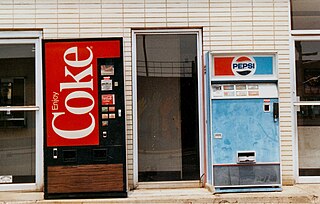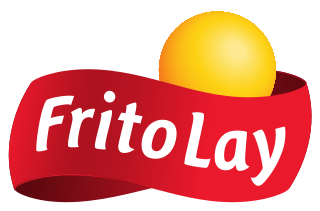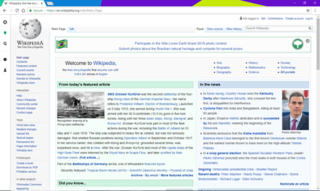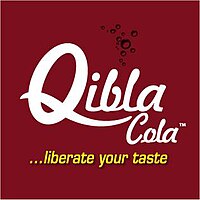
Coca-Cola, or Coke, is a carbonated soft drink manufactured by the Coca-Cola Company. In 2013, Coke products were sold in over 200 countries worldwide, with consumers drinking more than 1.8 billion company beverage servings each day. Coca-Cola ranked No. 87 in the 2018 Fortune 500 list of the largest United States corporations by total revenue. Based on Interbrand's "best global brand" study of 2020, Coca-Cola was the world's sixth most valuable brand.

Pepsi is a carbonated soft drink manufactured by PepsiCo. Originally created and developed in 1893 by Caleb Bradham and introduced as Brad's Drink, it was renamed as Pepsi-Cola in 1898, and then shortened to Pepsi in 1961. In 2022, it was the second most valuable soft drink brand worldwide, behind Coca-Cola.

Zakat is a form of almsgiving, often collected by the Muslim Ummah. It is considered in Islam as a religious obligation, and by Quranic ranking, is next after prayer (salat) in importance. Eight heads of Zakat are mentioned in the Quran.
Islamic banking, Islamic finance, or Sharia-compliant finance is banking or financing activity that complies with Sharia and its practical application through the development of Islamic economics. Some of the modes of Islamic banking/finance include Mudarabah, Wadiah (safekeeping), Musharaka, Murabahah (cost-plus), and Ijara (leasing).

The cola wars are the long-time rivalry between soft drink producers The Coca-Cola Company and PepsiCo, who have engaged in mutually-targeted marketing campaigns for the direct competition between each company's product lines, especially their flagship colas, Coca-Cola and Pepsi. Beginning in the late 1970s and into the 1980s, the competition escalated until it became known as the cola wars.

Mecca-Cola is a cola-flavoured carbonated beverage. The flagship product of the Mecca Cola World Company, it is marketed as an alternative to U.S. brands such as Coca-Cola and Pepsi-Cola to "pro-Muslim" consumers. The product's name contains the traditional Latin-alphabet transliteration of مكة, "Mecca" in Saudi Arabia.

Pepsi Max is a low-calorie, sugar-free cola, marketed by PepsiCo as an alternative to Pepsi and Diet Pepsi. Pepsi Max is available primarily in Asian and European markets. While Pepsi Max was released in April 5, 1993, it was first available on store shelves in the United States in 2007.

Diet Pepsi is a diet carbonated cola soft drink produced by PepsiCo, introduced in 1964 as a variant of Pepsi with no sugar. First test marketed in 1963 under the name Patio Diet Cola, it was re-branded as Diet Pepsi the following year, becoming the first diet cola to be distributed on a national scale in the United States. In the 1960s and 1970s, its competition consisted of the Coca-Cola Company's now-discontinued Tab. The United States represents the largest single market for Diet Pepsi.

PepsiCo, Inc. is an American multinational food, snack, and beverage corporation headquartered in Harrison, New York, in the hamlet of Purchase. PepsiCo's business encompasses all aspects of the food and beverage market. It oversees the manufacturing, distribution, and marketing of its products. PepsiCo was formed in 1965 with the merger of the Pepsi-Cola Company and Frito-Lay, Inc. PepsiCo has since expanded from its namesake product Pepsi Cola to an immensely diversified range of food and beverage brands. The largest and most recent acquisition was Pioneer Foods in 2020 for US$1.7 billion and prior to it was buying the Quaker Oats Company in 2001, which added the Gatorade brand to the Pepsi portfolio and Tropicana Products in 1998.

Future Cola is a cola-flavoured carbonated beverage manufactured by Hangzhou Wahaha Group of China, where its market share is 12-15%, making it the third-largest manufacturer of soft drinks in China behind Coca-Cola and Pepsi Cola. It is distributed by Reed's, Inc., in the United States as China Cola.
Contemporary Islamic philosophy revives some of the trends of medieval Islamic philosophy, notably the tension between Mutazilite and Asharite views of ethics in science and law, and the duty of Muslims and role of Islam in the sociology of knowledge and in forming ethical codes and legal codes, especially the fiqh and rules of jihad. See list of Islamic terms in Arabic for a glossary of key terms used in Islam.
Iqbal Ahmed is a Bangladesh-born British entrepreneur. Based in Manchester, he made his fortune importing shrimp. His two companies, Seamark and Ibco, have extensive interests in shipping, hotel and real estate development, hospitality, and food. Their success turned him into one of the United Kingdom's richest men. He is also the highest ranked British Bangladeshi to be featured on the Sunday Times Rich List.

Ajegroup, commonly known as AJE, is a Peruvian multinational company dedicated to the manufacture, distribution and sale of alcoholic and non-alcoholic beverages. The company was founded by the Añaños-Jerí Family in 1988 in Ayacucho, Peru. It is known for its flagship products Kola Real and Big Cola.
Transcom Limited is a Bangladeshi business conglomerate. The businesses under this group include beverage, pharmaceuticals, newspaper, radio channel, electronics, foods, etc. Transcom is the local agent or comprador of international brands. This group employs more than 10,000 people. Transcom Group is one of the oldest and biggest companies in Bangladesh. Their operation in Bangladesh initially started in 1985 as a tea plantation company.

Frito-Lay, Inc. is an American subsidiary of PepsiCo that manufactures, markets, and sells corn chips, potato chips, and other snack foods. The primary snack food brands produced under the Frito-Lay name include Fritos corn chips, Cheetos cheese-flavored snacks, Doritos and Tostitos tortilla chips, Lay's and Ruffles potato chips, Rold Gold pretzels, and Walkers potato crisps. Each brand generated annual worldwide sales over $1 billion in 2009.
Banking or banking activity that complies with Sharia —known as Islamic banking and finance, or Sharia-compliant finance—has its own products, services and contracts that differ from conventional banking. Some of these include Mudharabah, Wadiah (safekeeping), Musharakah, Murabahah, Ijar (leasing), Hawala, Takaful, and Sukuk.
Non-denominational Muslims are Muslims who do not belong to, do not self-identify with, or cannot be readily classified under one of the identifiable Islamic schools and branches. Such Muslims do not think of themselves as belonging to a denomination but rather as "just Muslims" or "non-denominational Muslims."

Pepsi-Cola Products Philippines, Inc. (PCPPI) is a Philippines-based company engaged in the bottling and distribution of PepsiCo beverages and snack foods in the Philippines since 1989.
Islamic banking and finance — the industry built around avoiding interest and other financial practices found in violation of sharia — has been both praised and criticized by observers.

SalamWeb was a Chromium-based browser developed by the now-defunct Dubai company Salam Web Technologies DMCC. Designed to deliver a Muslim-friendly Web experience, and targeted towards the Muslim audience, it observed the Islamic law and tradition and was certified as a Muslim compliant web browser.














